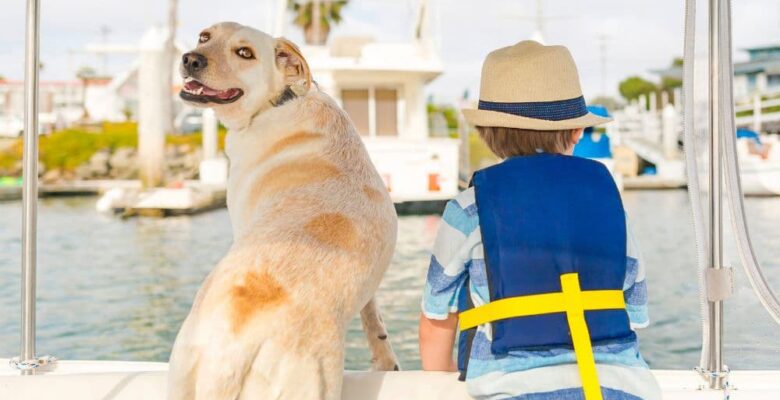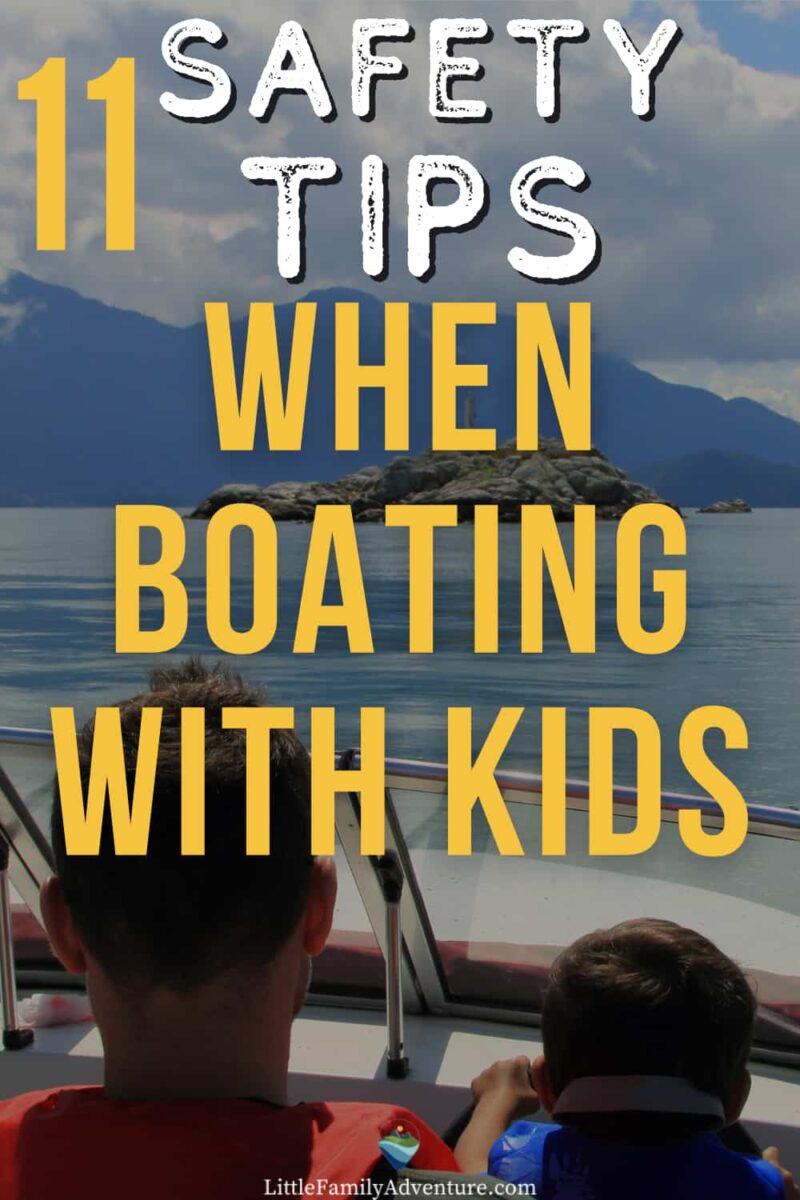Are you planning on boating with your family? Boating can be a lot of fun, but it’s important to stay safe while doing it. That’s why we’ve put together some boating safety tips for families.
By following these simple tips on how to stay safe on a boat, you and your loved ones can enjoy a fun day on the water safely. Make sure to keep them in mind the next time you hit the open seas!
This article contains affiliate links. We earn from qualifying purchases.

Keeping your Family Safe on the Water
While many parents worry about their children’s safety around swimming pools, as they should and need to do, drowning incidents can also occur in natural bodies of water. Safety precautions need to be taken around all water environments; swimming pools, lakes, rivers, and seas.
When boating with your family, boating safety tips are a must for everyone on board. Boats have the potential to capsize or run into other problems that can lead to injury or even death in some cases. Always remember, being safe is always the best policy, and never underestimate the power of nature just because you’re on a boat.
How to Be Safe on A Boat?
Review safety rules while on land
Ensure you talk to your family about boating safety rules before ever going on the boat, and make sure everyone is compliant. Make boating an activity that you do as a family to spend quality time with one another, but not in a way that it becomes babysitting for adults.

Wear your lifejacket
Make sure your children know how to properly wear a life jacket and always have children under 12 wear a life jacket at all times when boating or using personal watercraft.
Always use U.S. Coast Guard authorized floatation devices (PFDs). Never use water wings or other recreational type floating toys as a substitute for an approved PFD.
Even on non-motorized boats or if your family is canoeing or kayaking, be sure your child is wearing a life jacket and knows what to do if the boat flips.
Create a safety plan
Create a water safety plan for your family and have water emergency drills with your kids covering how to recognize the signs of someone struggling in the water and what to do in this type of emergency.
Teach your family the ‘Throw Don’t Go’ rescue method
Instead of entering the water to help a struggling person, teach your family to throw in a rope or rescue ring, then reach with a stick, paddle, or another object to pull the person in.
Know your boating regulation
Study boating safety rules, boating laws, and boating regulations before renting or buying a boat. Knowing the boating rules in advance may help you avoid fines or other legal penalties if boated safety rules are broken.
Read next: The Beginner’s Guide to Deep Sea Fishing in Galveston, TX: A Fun Trip For the Whole Family
Always wear shoes when boating
Wearing the proper footwear is essential to boating safety. If boating, always wear shoes as they help prevent slipping and falling on a boat’s wet surfaces. Flip flops or sandals are not appropriate footwear as they can easily become a hazard if you accidentally step off the boat.

Know where it is safe to swim
Before swimming in an open water area, look for warnings, posted notices, and water closures to ensure you are not swimming in a dangerous area.
If swimming is permitted, make sure your kids always wear their life jackets when boating or swimming near or on an open water body. Also never allow anyone to swim alone. Utilize the buddy system, so if someone does slip under the water, there is always another person around to save them.
Know boating hazards
Be aware of boating hazards that may cause harm to boaters including rapids, dams, rocks, logs, stumps, shallow bottoms or other submerged objects. Be sure the boating route is safe before traveling it.
Inflatable Boats
If using an inflatable boat or kayak, make sure all air chambers are fully inflated and be sure the valves on the boat are tightly closed.

Read next: Tips to Help You Teach Your Kids How to Paddle board
Be aware of the tides
If you are taking on a shore excursion, snorkeling, diving, etc. while boating, be aware of tides and currents and other risks the ocean or beach may have.
Know what to do if someone falls in the water
If you or another family member is near a natural body of water and accidentally falls in, learn to roll over on his or her back and float until help arrives if exiting the water is not an option.
Being safe while boating includes wearing life jackets, knowing boating regulations, and being aware of boating hazards. In addition, families should always have a safety plan in place in case of an emergency. Together, you will have a boating experience that is both safe and fun.




Great tips! So sad to see holidays and fun ended by tragedy!
Great tips! I remember when we went boating, my little one refused to wear a life jacket at first. But after explaining how fun it’d be if we all stayed safe, they were on board. How do you make safety rules fun for kids?